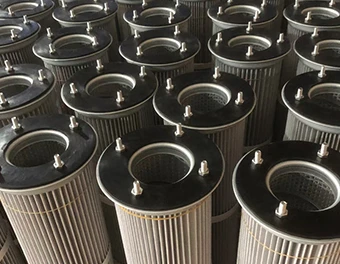 Tel:
+8615930870079
Tel:
+8615930870079
oct. . 10, 2024 21:37 Back to list
Exploring the Benefits and Applications of Metal Filter Elements in Filtration Systems
Understanding Metal Filter Elements A Key Component in Filtration Technology
In industrial applications, the significance of efficient filtration systems cannot be overstated. Contaminants in liquids and gases can lead to operational inefficiencies, equipment damage, and production downtime. Among various filtering options available, metal filter elements stand out as a durable and effective solution for a multitude of filtration needs. This article delves into the details of metal filter elements, including their design, advantages, applications, and future trends.
What is a Metal Filter Element?
A metal filter element is a component used within filtration systems to effectively separate particulate matter from fluids or gases. Made from various metals, including stainless steel, bronze, and aluminum, these filter elements provide a robust barrier that captures contaminants without breaking down or compromising performance. The design may vary, but most metal filter elements consist of a mesh or sintered structure that allows for efficient filtration while maintaining high flow rates.
Design and Construction
Metal filter elements are typically constructed using advanced manufacturing techniques such as sintering or welding, which enhance their structural integrity. Sintered metal filters, for example, are made from powdered metal that is heated until the particles fuse together, creating a porous material that offers precise pore sizes for targeted filtration. The choice of metal is crucial; stainless steel, for example, is favored for its corrosion resistance and durability, making it suitable for harsh environments.
Moreover, the design of metal filter elements can be tailored to meet specific filtration requirements. Different pore sizes, thicknesses, and shapes can be engineered according to the nature of the material being filtered and the desired flow rate. This versatility makes metal filters applicable across various industries.
Advantages of Metal Filter Elements
Metal filter elements offer several advantages over traditional filtration methods
1. Durability Unlike disposable filter media made from paper or fabric, metal filters can withstand extreme temperatures, pressures, and corrosive substances. This longevity translates into reduced replacement costs and less frequent maintenance.
2. Reusability Many metal filters can be cleaned and reused, making them a sustainable choice for filtration. This feature is especially beneficial in industrial processes where contaminants are present at higher levels.
metal filter element

3. High Filtration Efficiency Metal filter elements can achieve high efficiency in removing particulates from gases and liquids, even at micro-level sizes. Their rigid structures allow for minimal deformation during operation, ensuring consistent performance.
4. Customizability As mentioned, metal filters can be tailored to suit specific applications. This adaptability means that manufacturers can optimize filter design to enhance performance based on unique operational requirements.
5. Cost-Effectiveness While the initial investment in metal filter elements might be higher than traditional media, their durability and reusability often lead to long-term cost savings, making them a financially sound choice in the long run.
Applications of Metal Filter Elements
Metal filter elements find their application in various industries, including
- Oil and Gas Used in upstream and downstream processes for separating solid impurities from crude oil and natural gas. - Pharmaceuticals Ensuring the purity of pharmaceutical products by filtering out contaminants during production processes. - Food and Beverage Employed in processes to maintain hygiene and prevent contamination in food and drink production. - Chemical Processing Metal filters are used to protect equipment from particulate matter in chemical production and processing.
Future Trends in Metal Filtration
As industries evolve, the demand for efficient and sustainable filtration solutions continues to grow. Advancements in materials science and manufacturing technologies promise to enhance the capabilities of metal filter elements. Research into nanostructured materials may lead to even higher filtration efficiencies, while the development of smart filtration systems equipped with sensors could allow for real-time monitoring of filter status and performance.
Moreover, the trend towards sustainability is driving innovation in metal recycling and filter design, promoting the use of eco-friendly practices in manufacturing. As industries focus on reducing waste and improving their environmental footprint, metal filters are well-positioned to play a critical role.
Conclusion
Metal filter elements represent a vital component of modern filtration technology. Their durability, reusability, and high efficiency make them an essential choice for a diverse range of applications. As technology advances and industries strive for greater sustainability, the importance and functionality of metal filter elements are expected to expand, ensuring they remain a cornerstone in effective filtration solutions.
-
Nano Fiber Technology: Revolutionizing Cartridge Dust Collector FiltersNewsAug.06,2025
-
How Activated Carbon Air Cartridges Eliminate OdorsNewsAug.06,2025
-
Dust Filter Cartridge Handling Fine Particulate MatterNewsAug.06,2025
-
Cartridge Dust Collector Filter for Welding Fume ExtractionNewsAug.06,2025
-
Activated Carbon Filter Cartridge Effectiveness Against VOCsNewsAug.06,2025
-
Activated Carbon Air Filter Cartridge Benefits ExplainedNewsAug.06,2025

 Email:
Email:





